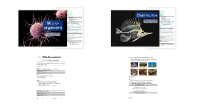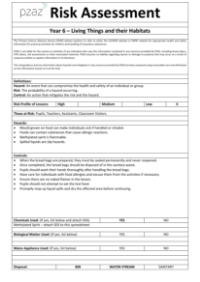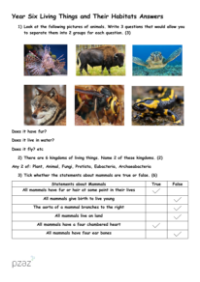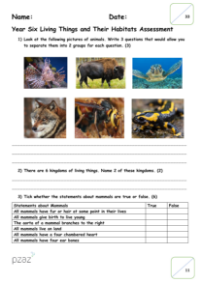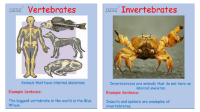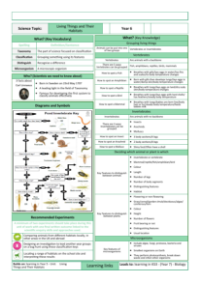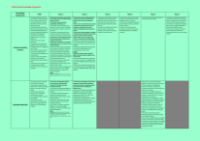Habitats Vocab - Assessment
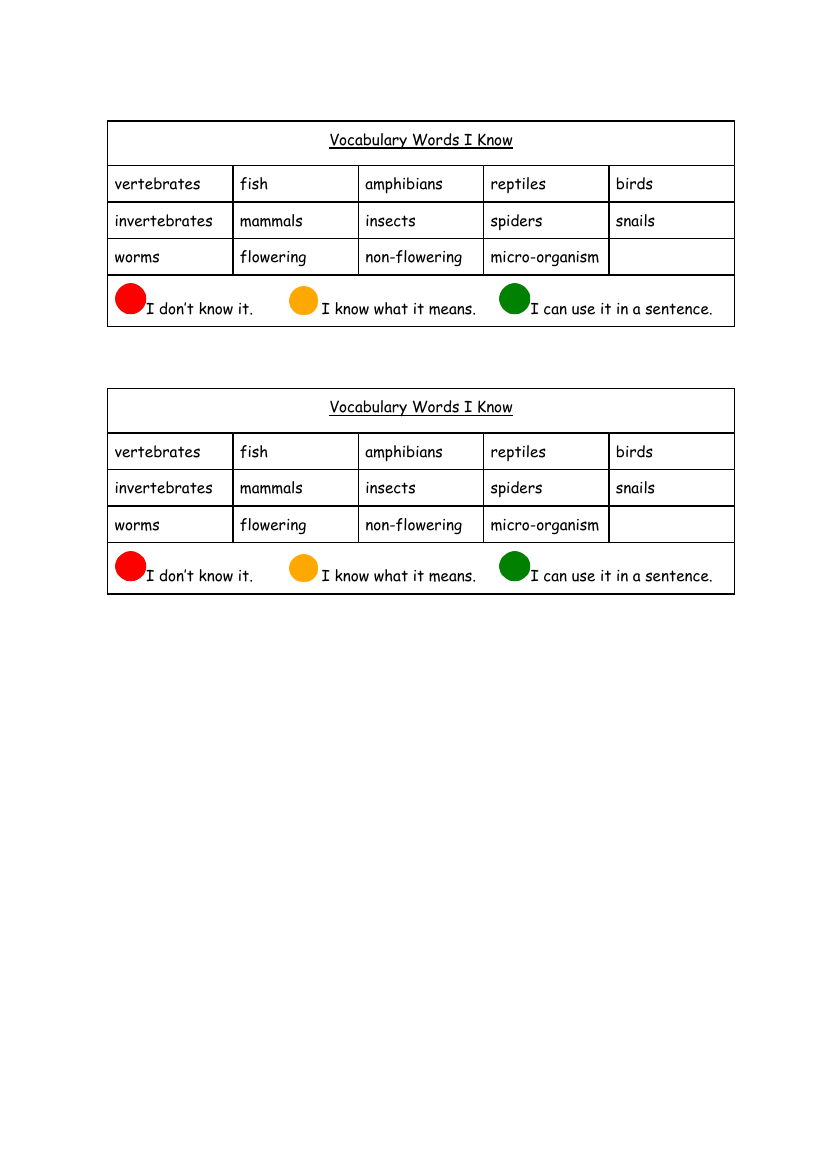
Science Resource Description
The assessment focuses on a range of vocabulary words related to habitats, specifically categorising living organisms and plant types. Students are presented with terms such as 'vertebrates' and 'invertebrates', which include creatures like fish, amphibians, reptiles, birds, mammals, insects, spiders, and snails. Additionally, they encounter other biological terms such as 'worms', 'flowering' and 'non-flowering' plants, as well as 'micro-organisms'. The assessment is structured to gauge the students' understanding of each word at three levels: recognition ('I don’t know it'), comprehension ('I know what it means'), and application ('I can use it in a sentence').
This vocabulary assessment serves as a tool to measure the students' knowledge and familiarity with key concepts in the study of habitats. By asking students to indicate their level of understanding for each term, educators can identify areas where further instruction or reinforcement may be needed. For example, a student might know that birds are vertebrates and can articulate this understanding by using the term in a sentence, while they might be less familiar with the concept of a non-flowering plant. This assessment helps in tailoring future lessons to address gaps in knowledge and reinforce learning in a targeted manner.

